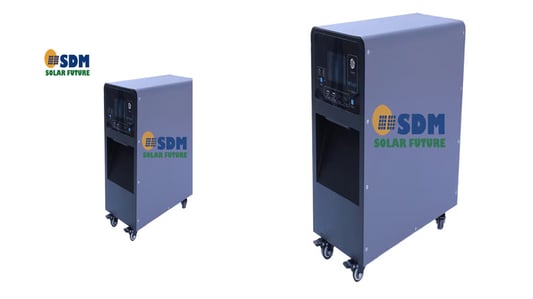Types of solar panel mounting accessories When it comes to setting up solar panels, having the right mounting accessories is crucial. There are various types of mounting accessories available in the market, including rail mounts, roof hooks, clamps, and tilt kits. Each of these accessories serves a specific purpose in ensuring that your solar panels are securely installed and optimized for maximum energy production.Benefits of Using Solar Panel Mounting Accessories Using high-quality solar panel mounting accessories can offer several benefits, such as improving the efficiency of your solar panels, protecting them from harsh weather conditions, and ensuring their longevity. By investing in the right mounting accessories, you can enhance the performance and durability of your solar panel system.Factors to Consider When Choosing Mounting Accessories Before purchasing solar panel mounting accessories, it's essential to consider a few factors to ensure that you get the right products for your specific needs. Factors to consider include the type of roof you have, the weight and size of your solar panels, the angle of installation, and the prevailing weather conditions in your area. By taking these factors into account, you can select the most suitable mounting accessories for your solar panel system.Installation Process of Solar Panel Mounting Accessories The installation process of solar panel mounting accessories may vary depending on the type of accessories you choose and the layout of your solar panel system. It's recommended to follow the manufacturer's instructions carefully and seek professional help if needed to ensure that the mounting accessories are installed correctly and securely. Proper installation is crucial for the overall performance and safety of your solar panels.Maintenance Tips for Solar Panel Mounting Accessories To ensure the longevity and efficiency of your solar panel system, regular maintenance of the mounting accessories is essential. This may include checking for loose screws or fittings, cleaning debris and dirt from the accessories, and inspecting for any signs of wear and tear. By regularly maintaining your solar panel mounting accessories, you can prolong the lifespan of your solar panels and maximize their energy output.Cost of Solar Panel Mounting Accessories The cost of solar panel mounting accessories can vary depending on the type, brand, and quality of the products. It's important to set a budget for mounting accessories and consider the long-term benefits of investing in high-quality accessories that offer durability and performance. While cheaper options may be available, it's crucial to prioritize quality and reliability when selecting mounting accessories for your solar panel system.Popular Brands of Solar Panel Mounting Accessories There are several reputable brands in the market that offer a wide range of solar panel mounting accessories. Some popular brands include Renogy, IronRidge, Solarland, and EcoFasten. These brands are known for their high-quality products, innovative designs, and reliability in the solar industry. When choosing mounting accessories, it's recommended to explore products from these trusted brands to ensure the quality and performance of your solar panel system.Environmental Impact of Solar Panel Mounting Accessories Using solar panel mounting accessories can have a positive environmental impact by promoting the use of clean and renewable energy sources. By installing solar panels and utilizing mounting accessories to optimize their performance, you can reduce your carbon footprint and contribute to a more sustainable future. Investing in solar energy is not only beneficial for your wallet but also for the planet.Latest Innovations in Solar Panel Mounting Accessories With advancements in technology, there are constantly new innovations in solar panel mounting accessories. These innovations aim to improve the efficiency, ease of installation, and durability of mounting accessories for solar panels. Some of the latest innovations include adjustable tilt mounts, integrated grounding systems, and lightweight aluminum mounting solutions. By staying updated on the latest trends in solar panel mounting accessories, you can enhance the performance and functionality of your solar panel system.Conclusion Solar panel mounting accessories play a crucial role in the performance, durability, and efficiency of your solar panel system. By choosing the right mounting accessories, considering key factors, and following proper installation and maintenance practices, you can maximize the benefits of solar energy for your home or business. Invest in high-quality mounting accessories to enjoy long-term savings on energy costs and contribute to a greener environment.Quote Inquirycontact us










